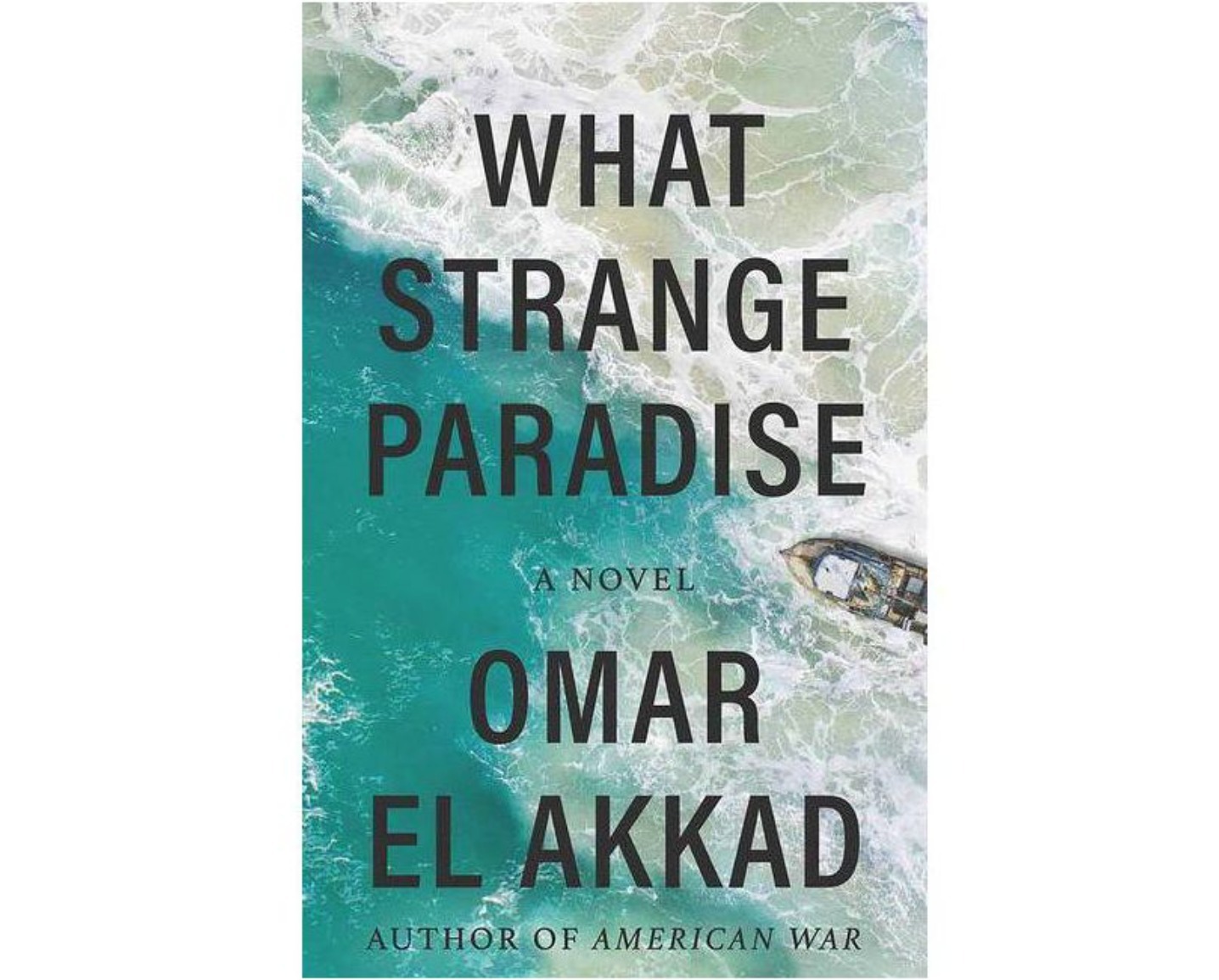
Along the far end of the port of Lesbos, I watch two Afghan boys push battered mountain bikes against a wind that drives in from the water, past a military vessel emblazoned with an EU flag. Farther out at sea, the forms of violence – from the elements or at the hands of those commanding such vessels – being delivered to others like these boys are difficult to think about. Yet it is into just such a world that Omar El Akkad draws us.
Set on an unnamed Aegean island, as well as in Egypt and on the fickle waters in between, What Strange Paradise traces the journey of a young Syrian boy across the Mediterranean to Europe. Nine-year-old Amir inadvertently finds himself aboard a smuggler’s rickety vessel in Alexandria whose wreckage is ultimately washed up on a European beach. The novel is structured into interlacing chapters of before and after, which recount Amir’s hazardous passage and the similarly perilous adventure following his arrival.
Central to the latter is the novel’s other key protagonist, the teenage Vanna: a second-generation northern European migrant whose family owns a failed guesthouse on the tourist-laden island. It is Vanna who first encounters Amir after his apparent brush with death. She becomes his accomplice in a mission to deliver him from the hands of the local police and asylum system to the mainland.
It is a Manichean world of azure sunlit beaches and blackened nights on a tormenting sea, where those seeking safety are ruthlessly exploited by smugglers and then rounded up at gunpoint by the authorities on arrival. Yet it is illuminated by individual acts of solidarity and heroism. El Akkad’s portrait of contemporary asylum-seeking – its violence, mercilessness and tedium, relieved by flashes of altruism – gives the uninitiated vivid insight into the realities of what is commonly called the EU’s “migrant crisis”.
Indeed, the opening passage in which Amir’s small body lies prostrate in the sand is an obvious reanimation of the image of the Kurdish toddler Alan Kurdi, whose tiny corpse unleashed a tide of global attention when it appeared in 2015. Yet El Akkad simultaneously plays with the boundaries of social realism, stretching them such that the story takes on a fable-like hue. It is unsurprising then that the author expresses a love of alchemy in writing, describing the book as a repurposing of the tale of Peter Pan: Vanna the young Wendy on the threshold of adulthood and escapism, and Captain Hook manifest in the novel’s steely Colonel Kethros, who, with his amputated leg, doggedly pursues the two children across the island.
The novel is thus also distinctly cinematic, populated by archetypes (the villainous smuggler, the conflicted young officer, the maternal Muslim woman) and driven by fast-paced action and pithy dialogue. At times, this dynamic can feel on the verge of trite. Kethros suffers from PTSD from military service in the Balkans, but this background of trauma is underdeveloped, while the fable-like simplicity in parts of the novel sits at odds with the nuances of its realism elsewhere, such as Vanna’s complex relationship with her distant mother. Nonetheless, the novel is interwoven with truths of such universal resonance, told with poignancy, that the reader often pauses between lines. Most resonant is El Akkad’s characterisation of the human relationship to place and to those perceived as outsiders. Vanna’s body, for example – with its white skin, blue eyes and blond hair – speaks to Amir of “luxury, betterment, possibility”. The novel explores how her Aryan body is dealt with differently to the dark-skinned migrants, many of them destined for the sea floor, among the “million interlocking bodies who’d braved this passage before… and come to rest at the bottom, sick with the secrets of their own unallowed mourning.”
The novel holds a mirror to the absurdity and cruelty of the EU migration system, while framing events in Europe against the vaster scale of disaster around the globe. As such, it is a meditation on human behaviour when pressed to its extremes: a study of universal relevance in which El Akkad weaves his tales while playing many roles, as Scheherazade does in One Thousand and One Nights: raconteur, provocateur – and, ultimately, jurist.
This piece is from the New Humanist spring 2022 edition. Subscribe here.

